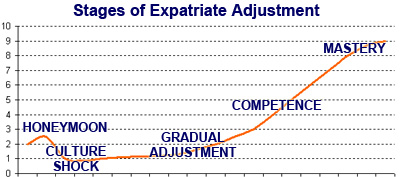
Abu Dhabi, Arabic for the 'Father of Gazelles', is the capital and the second largest city in UAE. Located in an island in the North-Eastern part of the Arabian Gulf, it is a popular choice for professional expatriates and a good alternative to Dubai in terms of employment opportunities.
In fact, this small emirate has one of the largest expat populations in the world. More than 1 million expats out of a population of just 2.5 million live there. It is interesting to note that, according to the UAE government, there were only 211,000 people living in this city in 1975.

Like in the rest of UAE, people in Abu Dhabi are proud of their traditions, despite the modernisation. So, it offers expats a variety of experiences, which expats might enjoy such as camel races pictured above.
With Abu Dhabi holding 9% of the world's oil reserves, it is no surprise that the majority of expats in Abu Dhabi work in the oil and gas industry. Although their economy relies mostly on natural resources, other sectors are becoming increasingly important. Finance, real estate, business services, construction and tourism are all growing sectors and help to make Abu Dhabi the strongest contributor to the UAE's total GDP.
Let's take a look at what Abu Dhabi has to offer to professional expats who are looking to relocate or are already living there, and some tips to make their life easier.
- It has one of the lowest unemployment rates in the world.
- Many positions require expats with specialised knowledge and good language skills.
- A number of international groups have their headquarters in the area.
- For expats looking for work, job websites and the local Reception Office are a good point to start when doing their job search.
- Different government entities offer recruitment opportunities on their websites. For example, the Ministry of Presidential Affairs (in Arabic, though).
Some hints and tips
- The city and the social life are heavily influenced by Muslim traditions and it is very conservative.
- Smoking is banned in public areas.
- Expats should avoid wearing revealing clothes.
- Always wear sun lotion to protect yourself from strong sunlight.
- Although healthcare in Abu Dhabi is regarded as good, it is also very expensive.
- There is a slower pace of life to Dubai.
- The volume of expat clubs make adjusting to expat life in Abu Dhabi easier than in some countries.
Thanks for reading this blog.
The Medibroker Team
Photo credit
Photo credit




